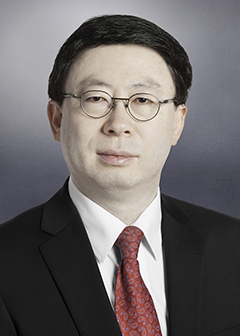
We are in the throes of a fundamental economic and societal transformation.
The Agricultural Revolution that took place around 10,000 BC liberated people from food insecurity via farming; the Industrial Revolution that commenced 200 years ago began to free people from grueling physical labor through machines; and the Artificial Intelligence (AI) Revolution occurring now is liberating people from cognitive labor through powerful computing, universal connectivity, and massive data. While AI has been disrupting and transforming many industries, including information access, communication, retail, manufacturing, agriculture, entertainment, travel, finance, and education, its seismic tremor is just beginning to impact the largest industry in the U.S., which accounts for nearly one-fifth of its GDP: Healthcare.
As a global academic leader in the areas of artificial intelligence, health data science, and informatics for medicine and healthcare, McWilliams School of Biomedical Informatics at UTHealth Houston, formerly UTHealth Houston School of Biomedical Informatics (SBMI) is helping the world reshape the future of medicine and healthcare through active engagement in the AI Revolution.
At McWilliams School of Biomedical Informatics, we collect, process, and convert data—ranging from molecules to populations—into actionable information, knowledge, and intelligence; we educate current and future leaders, innovators, and problem solvers across Texas, the nation, and the world; and we disrupt, transform, and innovate to elicit biomedical discoveries, improve healthcare delivery, and aid in disease prevention by conducting outstanding basic and applied research and developing impactful information technology products and solutions.
Our expertise comprehends three broad areas of education and research: (1) Data Science and Artificial Intelligence, (2) Clinical and Health Informatics, and (3) Bioinformatics and Systems Medicine. Moreover, the school’s education programs are designed to cover the broadest student needs, including several Graduate Certificate programs (fully online), two MS programs (research and applied; both online and in-person), two doctoral degrees (PhD - emphasizing research and Doctorate of Health Informatics [DHI] - emphasizing application and executive training), and a growing number of dual-degree programs (e.g., MD/MS, PhD/MPH, and MS/MPH, etc.).
Our faculty and students represent a wide array of health professions (e.g., medicine, nursing, pharmacy, public health, etc.), as well as the fields of computer science and engineering, mathematics and statistics, clinical informatics and bioinformatics, biomedical engineering, the biomedical sciences, healthcare management, cognitive science, and the law. The background of our faculty and students, coupled with the transdisciplinary nature of the school's education and research programs, creates a uniquely rich and rewarding collaborative environment that lays the groundwork for innovation and seminal discoveries.
The following list is representative of the research and applied projects undertaken by our faculty and students:
McWilliams School of Biomedical Informatics is the only academic program of biomedical informatics in Texas, the only free-standing school among 70 such programs in the nation, and one of the largest programs of its kind internationally. If a challenging world-class learning environment is what you are seeking, then join us to be among the informatics leaders of today and tomorrow.
Computer scientist Alan Kay famously said, “The best way to predict the future is to invent it.” In that spirit, I would invite you to lend your unique vision and abilities to our bold enterprise, as together we create an impactful future for healthcare delivery, disease prevention, and biomedical discovery.
At McWilliams School of Biomedical Informatics, we are Transforming Data to Power Human Health™.
Jiajie Zhang, PhD
Dean and Professor
Glassell Family Foundation Distinguished Chair in Informatics Excellence
McWilliams School of Biomedical Informatics
Updated: 08/05/2025